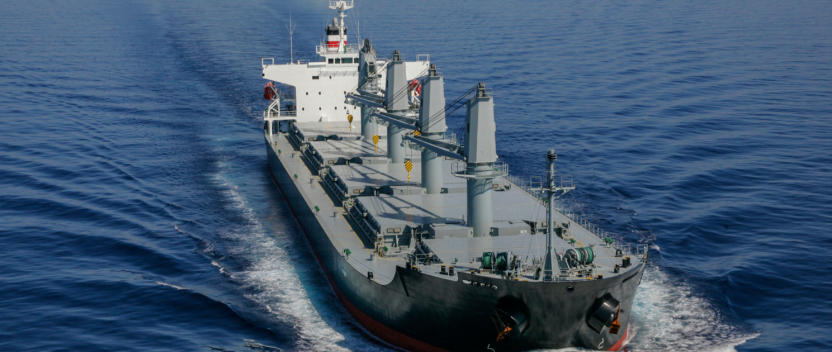Data sharing will not save the planet

Perhaps it’s the after-effects of two years in which knowledge workers got to stay at home and manual workers worked, but suddenly the desire to share data and pool knowledge in the maritime industry seems to have taken a step backwards.
This will make inconvenient listening for shipping’s leaders who are exhorting it to work together and collaborate in order to achieve lower carbon operations and move towards some of the lofty pledges made at COP26.
Despite the climate imperative, it seems that commercial imperatives have survived COVID and are alive and well. Putting the greater good ahead of self interest has always been a challenge for shipping. No shipowner survives who insists that their customers are paying too much for freight or lets another ship get to the berth first.
But when the stakes are greater efficiency, lower fuel costs and ultimately the lowering of carbon emissions, there is some logic to pooling knowledge in order to improve efficiency of the global fleet. This already happens in vessel safety; numerous projects allow the sharing of near miss and close call data on an anonymous basis and the results have been dramatic in terms incident reductions.
The principal problem for decarbonization efforts is that the basis for sharing needs to be built on an equitable foundation. The split incentive that keeps owners, operators and charterers at loggerheads remains firmly in place. When innovation requires investment, why should one owner or shipper pay for something another will benefit from?
As Chris Peters, Chief Executive Officer – Maritime Logistics, Tristar, told the recent Smart Maritime Network conference in Dubai, there is a perception gap between use of data for smart operations and reality.
“Technology is moving faster than traditional shipping people and it will move the industry forward but in way that many of those people cannot understand,” he said. Large companies might be happy to build platforms but they will fight shy of sharing data with others. “The challenges are financial and commercial; we don’t want to give away trade secrets but like to receive them.”
The advantages of pooling data are obvious provided it is of sufficient quality and John Harrison of Intellian Technology agreed the scope is limited. “The ability to gather good data, filter and disseminate it is life-changing but there are blocks to getting mass data. Pooling fleet performance data over a high speed network and analysing it in cloud has the potential to save hundreds of thousands of dollars, but that’s not for sharing,” he said.
Vivek Seth of ADNOC Logistics & Services repeated the oft-spoken but little-heard truth; volume and quality are not the same thing. “There’s a lot of garbage out there we need to understand that too. Your good data needs to stay in organization as a key competence. Data is knowledge that’s competitive advantage; how much you are willing to share is the question.”
Data might be the future of decision-making but the second issue around what kind of information can be shared is one of policy and regulation, according to Vinay Sharma, Director of Information Technology, Gulftainer. “There are tangible and intangible benefits and very precise information on port arrival would be good, but the challenge is a legal framework that lets us maximise the benefits,” he said.
Chris Peters added that US anti-trust law effectively prevents the sharing of any potentially valuable information and the legal penalty (prison) was more than enough for him to try, though he didn’t say which data and with whom it might be shared.
The panelists agreed it would be necessary to establish some kind of not-for-profit structure which could be used as the umbrella for data sharing, but this would require an industry notoriously unwilling to work together.
PortXchange was created to help shipowners save carbon and money by optimising their port calls. It uses machine learning to analyse data and has a process built around sharing data for mutual benefit. The more data it can get, the better it can help the members, including analysing multiple data sets and sharing the results, something it has done without so far troubling the authorities.
Even so, Director Business Development Tom Anneberg said PortXchange is sometimes required to guess some vessel information to input into the system, so keen are operators to maintain secrecy, something that he finds baffling given the scale of the challenge.
“My question is when we can share data for safety, why can’t we share data to save the planet?” he said. “We can look at certain points where return on investment is possible, but we run into problems when we sit down and try to get new people onboard. They ask ‘what’s in it for me’ and we have to say, possibly nothing, the return is in the emissions space.”


